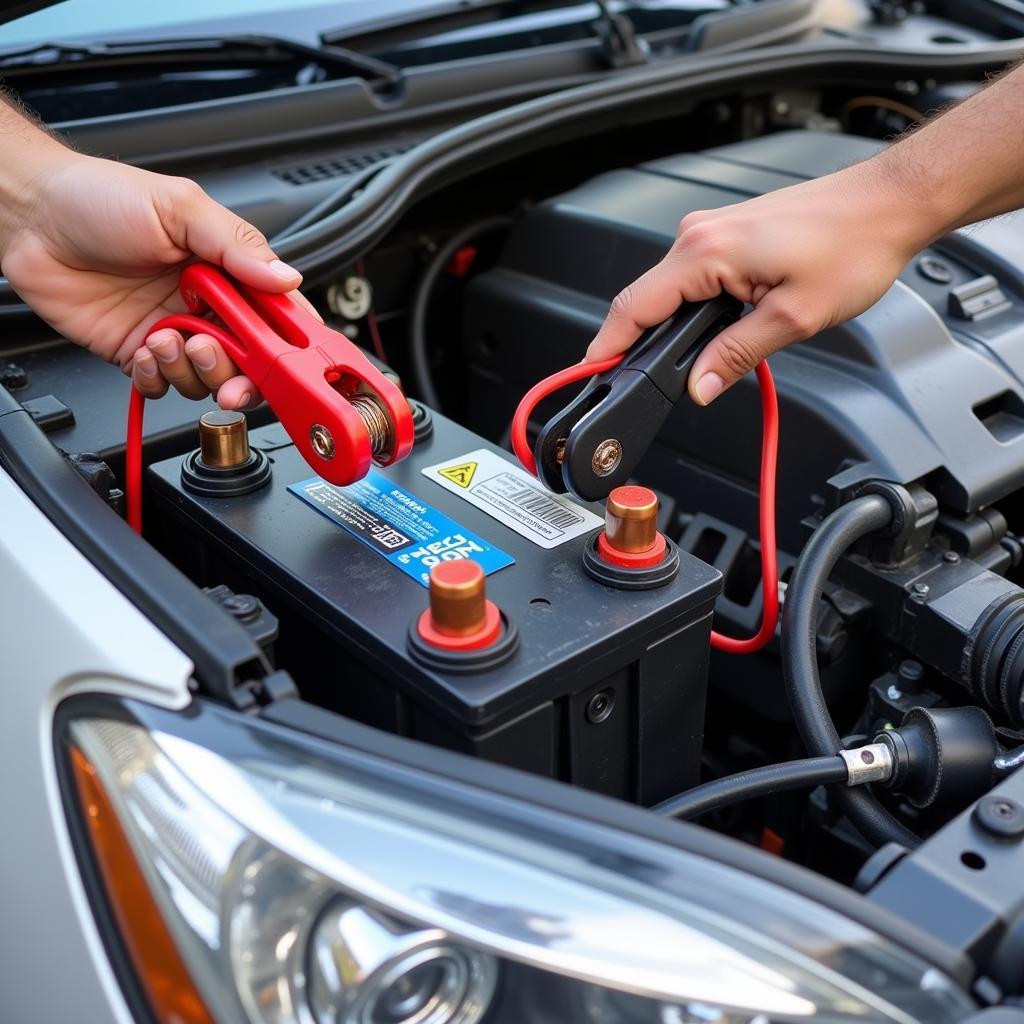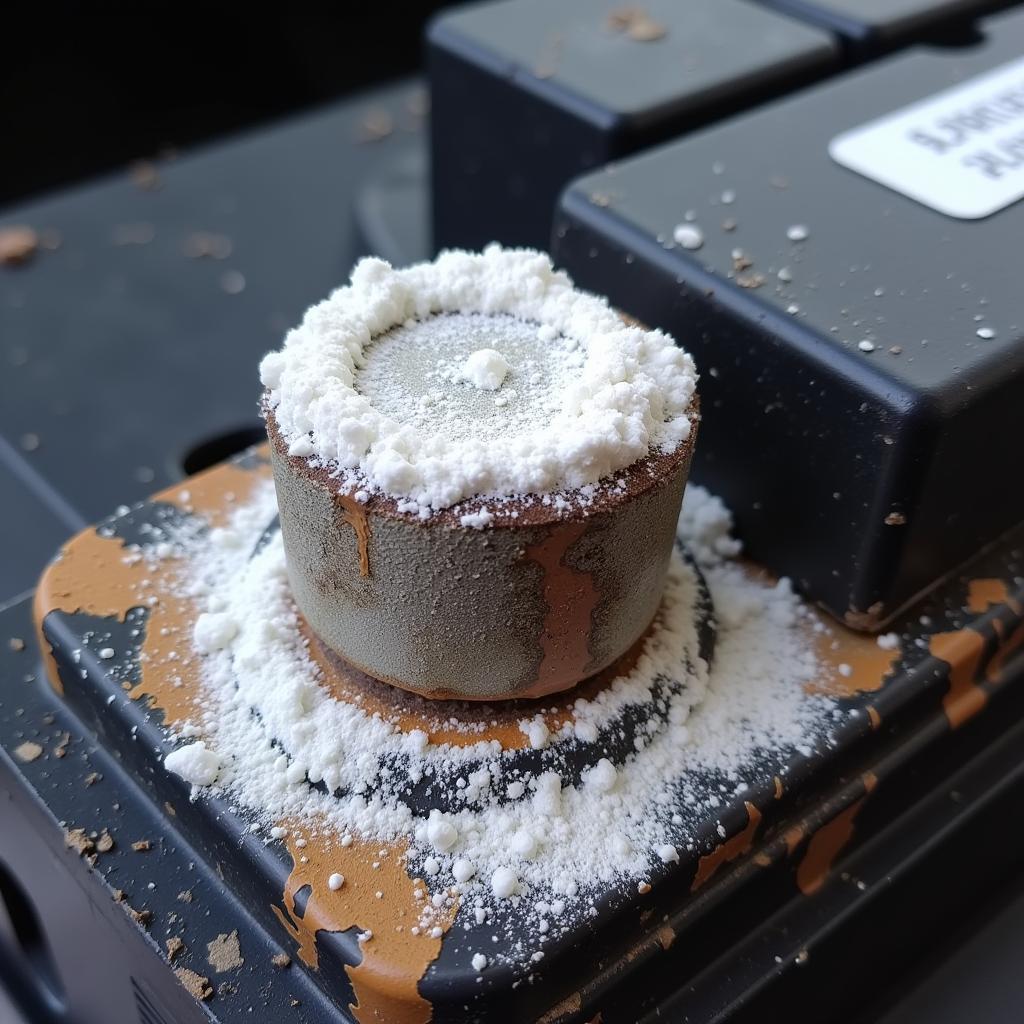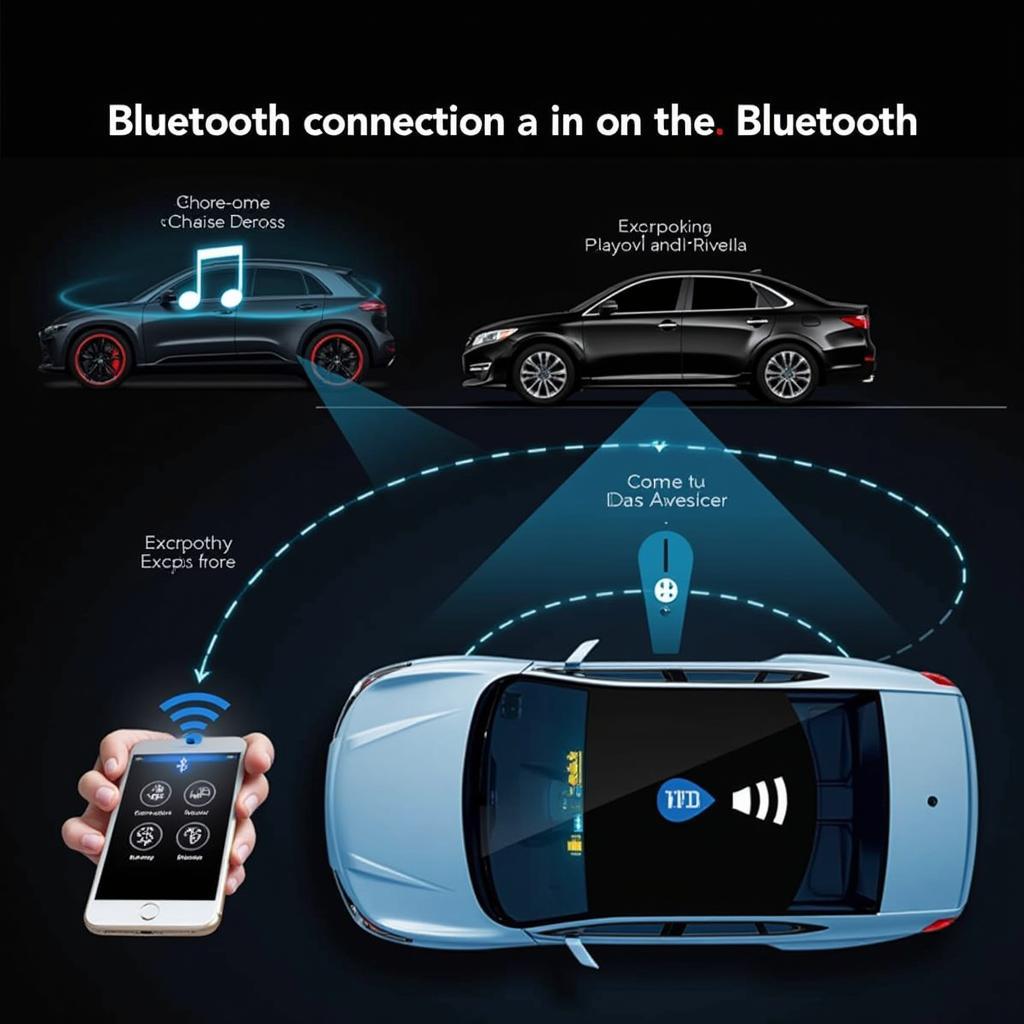Knowing the signs your car needs a new battery is crucial for avoiding unexpected breakdowns and ensuring a smooth, reliable driving experience. A failing battery can manifest in various ways, from slow engine cranking to flickering headlights. This article will delve into the common symptoms of a dying car battery, empowering you to diagnose the problem early and take appropriate action. We’ll cover everything from the obvious signs to the more subtle indicators, providing you with the knowledge you need to keep your vehicle running smoothly. Let’s get started.
 Car Battery Jump Start
Car Battery Jump Start
Common Signs Your Car Needs a New Battery
Several tell-tale signs indicate your car battery is nearing the end of its life. Recognizing these symptoms can save you time, money, and frustration. These common signs can range from easily noticeable issues to more subtle hints that something is amiss with your car’s electrical system.
- Slow Engine Crank: This is often the first and most noticeable sign. If your engine cranks slowly when you turn the key, it’s a strong indication the battery is struggling to provide enough power to start the engine. This is especially prevalent during cold weather.
- Dim Headlights: A weakening battery might not be able to power your headlights at their full brightness. You might notice dimming, especially when the engine is idling.
- Clicking Sound When Turning the Key: If you hear a rapid clicking sound when you turn the key but the engine doesn’t crank, it likely means the battery doesn’t have enough power to engage the starter motor.
- Electrical Malfunctions: A failing battery can cause various electrical issues, such as malfunctioning power windows, interior lights, and radio.
- Dashboard Warning Light: The battery or check engine light on your dashboard can illuminate if there’s a problem with the charging system or the battery itself.
- Swollen Battery Case: Excessive heat can cause the battery case to swell or crack. This is a serious safety hazard and requires immediate attention.
- Old Battery Age: Car batteries typically last between three and five years. If your battery is approaching or exceeding this age, it’s wise to have it tested.
 Car Battery Corrosion
Car Battery Corrosion
Have you ever tried connecting Bluetooth earbuds to your car radio? It can be a surprisingly complex process, depending on your car’s system. Learn more about how can bluetooth ear buds be paired to my car radio.
Diagnosing a Bad Car Battery
While observing the signs mentioned above can give you a good indication of a failing battery, it’s crucial to perform a proper diagnosis to confirm the issue. You can test your battery’s health with a multimeter.
Testing Your Car Battery with a Multimeter
- Set the multimeter: Set your multimeter to measure DC voltage.
- Connect the probes: Connect the red probe to the positive (+) terminal and the black probe to the negative (-) terminal of the battery.
- Read the voltage: A fully charged battery should read around 12.6 volts or higher. A reading below 12.4 volts indicates the battery needs charging. A reading below 12 volts usually signals a dying battery.
If you are interested in upgrading your car radio, you might consider options like bluetooth car radios with red lightings or a wired 12v bluetooth car receiver am radio. You can even find ways to turn car radio into bluetooth reddit for DIY solutions. Another stylish option is a bluetooth radio car red.
What Causes a Car Battery to Fail?
Several factors can contribute to a car battery’s demise. Understanding these causes can help you prolong the life of your battery and avoid premature failure.
- Extreme Temperatures: Both extreme heat and cold can negatively impact a battery’s lifespan.
- Short Trips: Short trips don’t allow the battery enough time to fully recharge.
- Parasitic Drain: Even when the car is off, certain electrical components can draw power from the battery, leading to a slow drain.
- Old Age: As batteries age, their ability to hold a charge diminishes.
- Corrosion: Corrosion on the battery terminals can hinder the flow of electricity.
Expert Insight: “Regularly cleaning your battery terminals can significantly extend its lifespan,” says John Smith, Automotive Electrical Engineer at CarDiagTech.
Conclusion
Recognizing the signs your car needs a new battery is essential for preventing inconvenient breakdowns. By understanding the common symptoms, performing a proper diagnosis, and addressing the underlying causes, you can ensure your vehicle starts reliably every time. Don’t wait until your car leaves you stranded – be proactive and address your battery concerns promptly.


